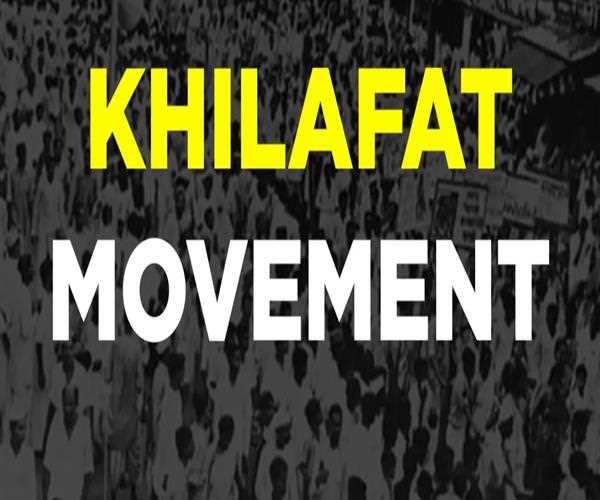
19-Jun-2024 , Updated on 6/19/2024 5:49:10 AM
The Khilafat Movement: A Misguided Alliance with Dangerous Consequences
After the First World War, the Khilafat movement in India emerged as a significant force, profoundly impacting the nation's political, social, and cultural landscape. This movement not only contributed to India's eventual partition but also sowed the seeds of divisive politics that continue to plague the country. Despite its lasting impact, many remain ignorant of the true nature of the Khilafat movement. Let's delve into this contentious chapter of history.
Since the inception of Islam, the goal of establishing Islamic rule has been paramount. Across the globe, Muslims have sought to create a singular Islamic state, rejecting the legitimacy of any non-Islamic nation. The descendants of Prophet Muhammad, known as the Caliphs, are considered both the religious and political leaders of the Muslim world. According to Islamic tradition, wherever Muslims hold power, the ruler must govern as a representative of the Caliph, under the broader governance of the Caliphate.
Indian Muslims have historically supported the concept of the Caliphate. By the late 19th century, as the Ottoman Caliph Abdul Hamid's political situation weakened, he sought support from Indian Muslims. His vision was to establish global Islamic rule as part of a broader plan to create a pan-Islamic state, which he called Islamabad. To this end, he dispatched his ally, Jamaluddin Afghani, to India. Afghans garnered substantial support from influential Indian Muslims, spreading the Caliph's vision.
In India, new Muslim groups emerged with the goal of establishing Islamic rule. Leading figures like Maulana Abul Kalam Azad, one of the founders of Jamia Millia Islamia University, along with religious extremists like Afif Amjad Khan and influential brothers Maulana Mohammad Ali and Shaukat Ali, played pivotal roles. During the First World War (1914–1918), Turkey's defeat and the loss of the Caliphate spurred Indian Muslims to launch the Khilafat Movement, aimed at restoring the Caliphate.
To save the Caliphate, a Khilafat Committee was formed in India, opposing British rule from all corners. Since Britain had played a crucial role in defeating the Turkish Caliph and they also held power in India, Muslims began to oppose Britain in support of the Caliphate. Realizing the necessity of Hindu support for their religious movement, leaders like Maulana Abdul Bari reached out to Congress leaders.
Muslims were drawn into the Indian independence movement, but many city council Muslim leaders saw it as a Hindu-driven endeavor threatening their interests. Consequently, most Muslim leaders aligned with British authorities to advance their religious goals, a beneficial alliance for the British, as it indicated not all classes supported Congress's push for self-rule.
The changing dynamics necessitated Hindu support for Muslim religious goals. Mohandas Gandhi saw a political opportunity in the Khilafat movement, persuading Congress leaders to support it as a means of fostering Hindu-Muslim unity. Khilafat Day was celebrated on October 17, 1919, in Delhi, followed by an All India Khilafat Conference on November 23, 1919, chaired by Gandhi. In 1920, at a special Congress session in Kolkata, Gandhi focused on the Khilafat issue.
Congress historians have often tried to separate the Khilafat movement from the support movement, but they are intertwined. The support movement, aimed at opposing the Rowlatt Act and the Jallianwala Bagh massacre, originally included the Khilafat issue. Bhimrao Ambedkar, in his book "Thoughts on Pakistan," pointed out that the support movement was rooted in the Khilafat movement, not merely the struggle for self-rule.
Ironically, while Turkey, under nationalist leader Kamal Ataturk, was establishing a secular democracy by abolishing the Caliphate, India, under Gandhi's influence, was politically and financially supporting the Khilafat movement. Congress's appeasement policy saw the appointment of Muslim leaders as national presidents of Congress, a strategy to garner Muslim support.
However, the Khilafat movement soon revealed its darker side. Meetings echoed with calls for jihad and violence against non-believers. Maulana Mohammad Ali Jauhar, a key figure, openly prioritized a "characterless" Muslim over Gandhi himself. This religious fervor fueled violence, as seen in the Malabar Rebellion of 1921, where Muslims forcibly converted Hindus and declared Islamic rule until British intervention.
The Khilafat movement led to significant bloodshed and forced conversions, as detailed in reports from the Servant of India society. Despite Gandhi condemning the violence, leftist and Congress historians downplayed the religious extremism, portraying it as a mere uprising against landlords. Yet, the reality was far more complex and brutal.
By 1923, communal violence had spread to various regions. Leaders like Maulana Mohammad Ali Jauhar even sought foreign military intervention to establish Islamic rule in India. Despite these extremist actions, figures like Jauhar were honored, with institutions and streets named after them, reflecting the enduring and controversial legacy of the Khilafat movement.
The failure of the Khilafat movement left a lasting impact on Indian politics. Congress's strategy of Muslim appeasement continued post-independence, hollowing out genuine secularism and fostering divisive politics. The Khilafat movement's influence persists, as seen in modern political slogans and protests echoing its legacy.
If Indian society wishes to avoid another partition-like scenario, it must confront and end the politics of polarization rooted in the Khilafat movement's divisive mindset. Only then can India move towards true unity and stability.

Student
I am a content writter !
Join Our Newsletter
Subscribe to our newsletter to receive emails about new views posts, releases and updates.
Copyright 2010 - 2026 MindStick Software Pvt. Ltd. All Rights Reserved Privacy Policy | Terms & Conditions | Cookie Policy